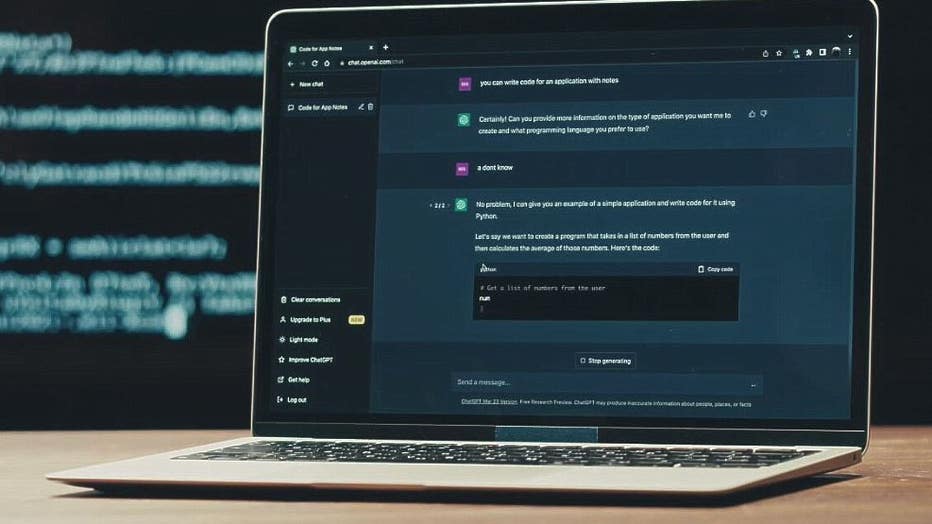Colleges scramble to police ChatGPT usage by students with AI shortcut

College professors try to adapt to ChatGPT as AI impacts higher learning
Congress isn't alone in scrambling to establish policies on artificial intelligence - on college campuses in Metro Detroit and beyond a pandora's box of sorts has opened.
FOX 2 (WJBK) - Congress isn't alone in scrambling to establish policies on artificial intelligence - on college campuses in Metro Detroit and beyond a pandora's box of sorts has opened.
University students are embracing the new tech as a possible shortcut for an easy 'A'. Professors are now adapting to students who have access to A.I. programs like ChatGPT.
Administrators are trying to adapt as fast as they can, but they admit it's hard to keep up with a machine that can learn and evolves the more it's used. For those who want to abuse it cheating on paper for example - can do with relative ease.
"We went on spring break and came back and all of a sudden the whole world was on AI," said Kelly Genei, associate professor, Cleary University.
One of the most popular language models is ChatGPT which, according to itself, is designed to generate human-like text responses to prompts instantly.
That tech can open a lot of doors on college campuses.
"This is the future," said Rune, a student.
"The AI will help them understand it and explain it in a way that they can comprehend," said Jaden Huffman, student.
But now that the door is open, it's hard to tell what is on the other side - especially when it comes to cheating.
"Any questions that you have, it generates an answer for you," said Isabel Luther.
"Just allow it to do things like writing essays and filling out those kind of things," Rune said.
"We see it being used to assist in writing papers," said Genei.
"I think one of the biggest dangers is that you are not getting what you're paying for," said Dr. Sam Srauy, Oakland University. "If you're coming for a college education, you are coming to learn not just use a tool, but rather how to think through why would you use a tool."
Which is why college campuses everywhere are scrambling to develop a policy when it comes to AI abuse.
"What is acceptable and what isn’t acceptable, that is the hard part that we are working on right now," said Srauy, an associate professor of communication. "And frankly, we don’t have the answer."
Some universities are using current plagiarism models.
"It’s against our academic integrity policies," said Genei.
But it's not foolproof.
"You can suspect something but how can you prove it?" said Srauy.
Maybe AI can police itself?
"Turnitin.com is used all over the world, probably, but it is widespread and we've been using it to detect plagiarism for years and years," Genei said. "And that is also developing the ability to detect AI-generated text as well."
There is a different approach since ChatGPT can't form an opinion - adapt the curriculum.
"Learning through discussion or exploration rather than just reading and writing," said Adam Mayhew, Dean of Undergraduate Studies, Cleary University.
"You really can’t recycle assignments, like ever," Srauy said.
This approach embraces the AI rather than looking to punish its use.
"We’re not discouraging students from using it at all," said Mayhew. "Eventually it will be where we go, to get information."
Using it as a starting point rather than an end.
"Let me see your ChatGPT how can you change that to reflect you, right?" Srauy said. "Maybe that’s a better way of starting."
The trick now becomes learning to keep up with AI that's also constantly learning itself.
"If you continue to ask it questions it will continue to give you better and better answers," said Mayhew.
"It’s a tool that is going to be a part of our lives forever," said Genei.
In terms of cheating, Cleary University is using a 'three-strikes and you're out' approach. The hope is that students will have a chance to learn from their mistakes, rather than looking for a quick ticket to a degree.


